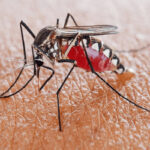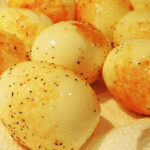The Health Benefits of Drinking Tea and Water
Drinking Tea
A study conducted by Huashan Hospital, affiliated with Fudan University in China, revealed the distinct benefits of tea consumption. As published in the Nature journal, after a 9-year observation of over 370,000 individuals, researchers found that habitual tea drinkers could reduce their risk of cognitive decline by 16% compared to non-tea drinkers. They recommend consuming approximately 3 cups of tea daily (1 cup equals 250 ml) for optimal results.
Another study from the University of Milan, Italy, published in the “British Journal of Cancer,” also indicated that regular tea drinking is associated with a reduced risk of stomach cancer. Experts analyzed data between high tea drinkers and low or non-tea drinkers, and the results showed that higher tea consumption corresponded to a lower risk.
Additionally, a 2020 study published in Advances in Nutrition found that tea may help prevent certain cancers, including stomach, colorectal, biliary tract, liver, and especially oral cancer. The American Journal of Clinical Nutrition also published a separate study demonstrating that daily tea drinkers could reduce their risk of diabetes by 8%. For those already living with diabetes, drinking green tea may lower the risk of mortality from all causes.

A 2020 study published in Advances in Nutrition linked tea consumption to a reduced risk of several types of cancer.
Drinking Water
A study conducted by the National Institutes of Health in the US and published in the medical journal eBioMedicine highlighted that maintaining adequate hydration not only improves overall health but may also slow down aging and reduce the risk of chronic diseases, thereby extending lifespan.
This research monitored the health of 11,255 individuals aged 40 to 50 over 30 years. By the end of the survey, the average lifespan of this cohort was 76 years. Notably, scientists examined the water-drinking habits of participants by measuring sodium levels in their blood. A clear association was established: blood sodium levels tended to decrease as water intake increased.
Results showed that individuals with sodium levels exceeding 142 millimoles/L – indicative of dehydration – appeared to be “older” by up to 50% compared to their actual age. They also had a 64% higher risk of developing chronic conditions such as heart failure, stroke, atrial fibrillation, peripheral artery disease, chronic lung disease, diabetes, and cognitive impairment than those with sodium levels between 137 and 142 mmol/L.
Another large-scale study spanning 25 years and involving nearly 16,000 participants, conducted by the National Heart, Lung, and Blood Institute (NHLBI), supported these findings. It revealed that adults who consistently maintained proper hydration had better health, fewer chronic conditions, and a higher likelihood of living longer than those who did not meet their body’s water needs.

According to the research, adults who regularly stay hydrated tend to have better health and longevity.
Tea or Water: Which is the Better Choice for Health and Longevity?
Over time, numerous studies have highlighted the significant health benefits associated with both tea drinking and maintaining adequate daily water intake. Among these, nutrition experts now advise that water can be considered a superior choice compared to tea. This is mainly because water does not contain caffeine, sugars, or other additives that may be harmful to the body.
Drinking enough water not only provides essential hydration but also facilitates the absorption of minerals like calcium and magnesium. These ions enter the bloodstream and quickly permeate cells, supporting nutritional metabolism, boosting heart and bone health, and promoting cellular metabolic activity. This is crucial for maintaining the normal function of organs in the body.
If you are a tea enthusiast, tea drinking can still be incorporated with water consumption to ensure adequate hydration. However, tea should not entirely replace water, as many teas contain added flavors and sugars. Excessive consumption of these components may have detrimental health effects. Moreover, the caffeine in tea has a diuretic effect, potentially leading to dehydration, while tea polyphenols may interfere with iron absorption. Therefore, relying solely on tea without supplementing water is not recommended in daily dietary practices.
Why You Need a Mosquito Bat This Rainy Season
“Mosquitoes are a nuisance and a health hazard, especially during the rainy season when they breed prolifically. It is imperative to take proactive measures to curb their reproduction and eradicate their presence. This rainy season, arm yourself with an effective mosquito bat to keep these pests at bay and ensure the well-being of your family.”





































